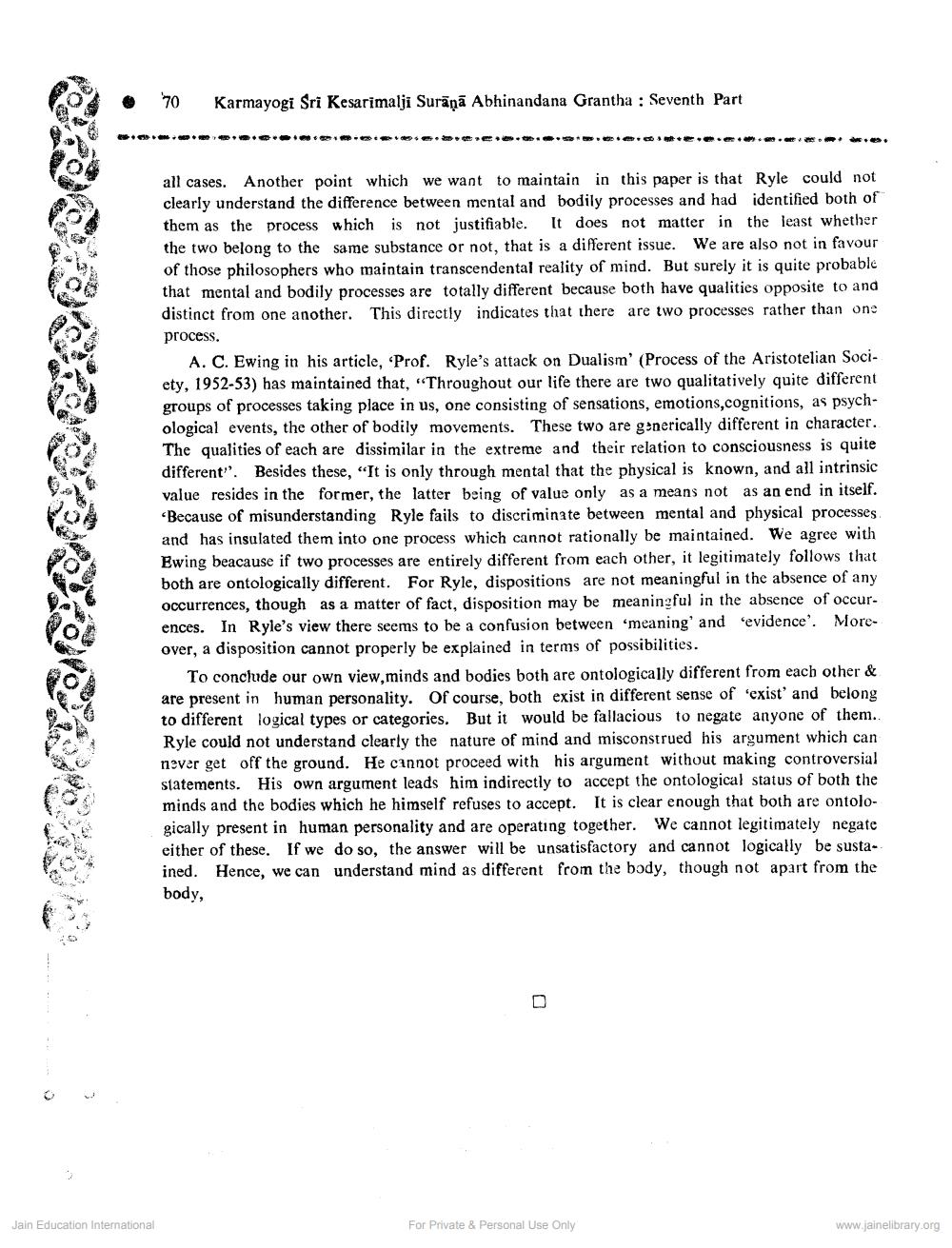________________
407
7 0
Karmayogi Sri Kesarimalji Surāņā Abhinandana Grantha : Seventh Part
STAR
vo
all cases. Another point which we want to maintain in this paper is that Ryle could not clearly understand the difference between mental and bodily processes and had identified both of them as the process which is not justifiable. It does not matter in the least whether the two belong to the same substance or not, that is a different issue. We are also not in favour of those philosophers who maintain transcendental reality of mind. But surely it is quite probable that mental and bodily processes are totally different because both have qualities opposite to and distinct from one another. This directly indicates that there are two processes rather than one process.
A. C. Ewing in his article, Prof. Ryle's attack on Dualism' (Process of the Aristotelian Society, 1952-53) has maintained that, "Throughout our life there are two qualitatively quite different groups of processes taking place in us, one consisting of sensations, emotions,cognitions, as psychological events, the other of bodily movements. These two are generically different in character. The qualities of each are dissimilar in the extreme and their relation to consciousness is quite different". Besides these, "It is only through mental that the physical is known, and all intrinsic value resides in the former, the latter being of value only as a means not as an end in itself. "Because of misunderstanding Ryle fails to discriminate between mental and physical processes and has insulated them into one process which cannot rationally be maintained. We agree with Ewing beacause if two processes are entirely different from each other, it legitimately follows that both are ontologically different. For Ryle, dispositions are not meaningful in the absence of any occurrences, though as a matter of fact, disposition may be meaningful in the absence of occurences. In Ryle's view there seems to be a confusion between meaning' and 'evidence'. Moreover, a disposition cannot properly be explained in terms of possibilities.
To conclude our own view,minds and bodies both are ontologically different from each other & are present in human personality. Of course, both exist in different sense of 'exist' and belong to different logical types or categories. But it would be fallacious to negate anyone of them.. Ryle could not understand clearly the nature of mind and misconstrued his argument which can never get off the ground. He cannot proceed with his argument without making controversial statements. His own argument leads him indirectly to accept the ontological status of both the minds and the bodies which he himself refuses to accept. It is clear enough that both are ontologically present in human personality and are operating together. We cannot legitimately negate either of these. If we do so, the answer will be unsatisfactory and cannot logically be sustained. Hence, we can understand mind as different from the body, though not apart from the body,
0
63
Jain Education International
For Private & Personal Use Only
www.jainelibrary.org




